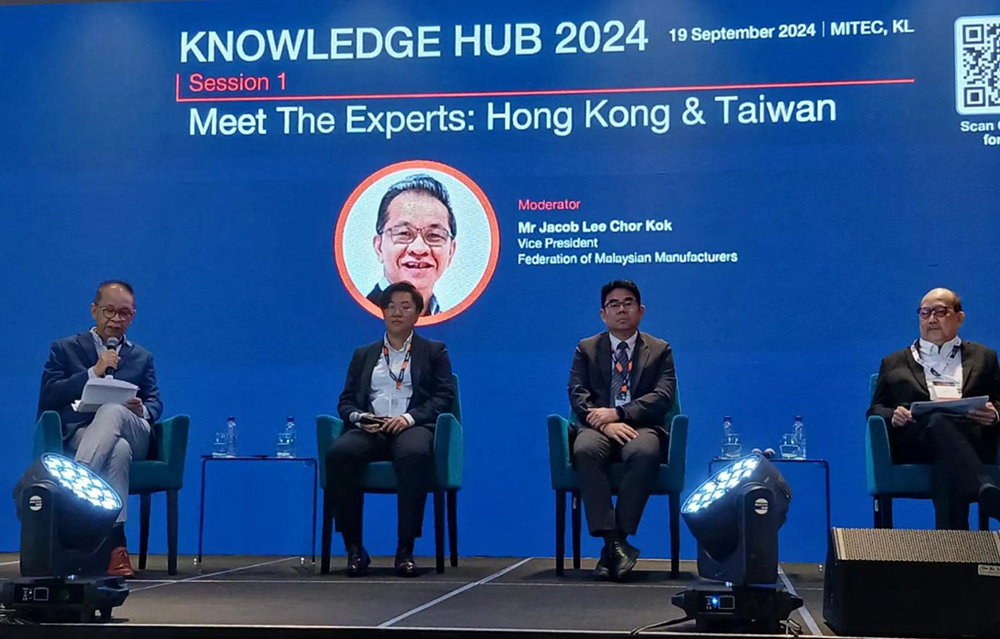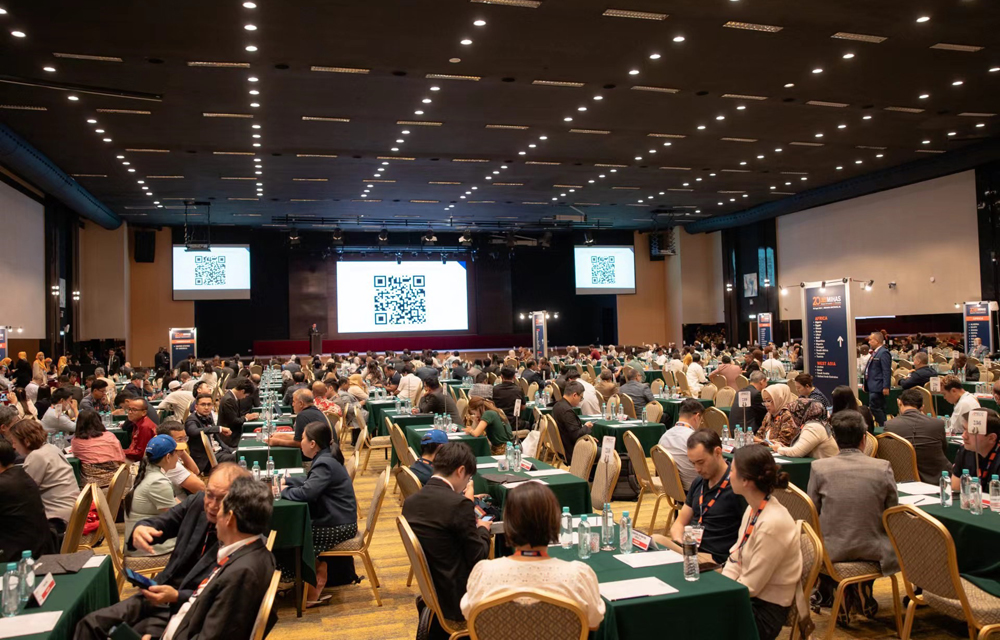
KUALA LUMPUR – Exporters who wish to sell their halal food products in China – one of the biggest halal markets – need to go beyond offering Muslim-friendly products, an international forum heard on Thursday.
Marketing halal food products as healthy and safe will not only appeal to Chinese Muslims but also to the broader consumer market as well, according to the speakers at the panel discussion at the Malaysia International Halal Showcase (MIHAS) 2024.
MIHAS is an annual event organized by the Malaysia External Trade Development Corporation (MATRADE). The trade expo showcases products and services that are halal (Arabic for permissible) or aligned with the Islamic faith.
Malaysia, a Muslim-majority country, is one of the world’s biggest halal product exporters, and counts China, the United States and Singapore as its top markets.
China is home to more than 20 million Muslims, with the country among the world’s biggest consumers of halal products.
“Halal is often associated with Islamic dietary laws, however, they are not exclusive to Muslims. In fact, halal products represent a broader concept of cleanliness,” said Jacob Lee Chor Kok, vice-president of the Federation of Malaysian Manufacturers.
Lee, who moderated the forum, said halal products also appeal to health-conscious consumers or those who buy based on ethical and environmental considerations.
“By understanding halal in this broader context, we can see these products have the potential to appeal to a diverse consumer base,” he said.

Chua Hock Tee, CEO of Omni Mal Agencies, a Malaysia-based supplier of halal dates, said his company managed to carve a niche in China’s Taiwan by marketing date syrup as a low-glycemic alternative to other brands of sweet syrup.
Chua said most consumers in Taiwan believe that sweet food and beverages are bad for their health. This is why Omni Mal obtained a certification that its date syrup has a low-glycemic index, assuring consumers that while the product is “sweet, it will not spike up your blood sugar”.
The company sponsored symposiums and Chua himself appeared in some TV shows to explain the health benefits of the company’s date syrup.
Chua said Omni Mal also joined food fairs and marketed dried dates as gift products and baking ingredients as consumers in Taiwan only associate dates with red dates. While red dates are a fruit of the jujube tree, Omni Mal’s dates are obtained from the date palm.
Pinky Lee, sourcing manager of the Hong Kong-listed retailer CEC International Holdings, said Malaysian halal exporters who wish to sell to the Hong Kong Special Administrative Region need to understand that the SAR is a densely-populated and fast-paced city.
She added that people in Hong Kong also travel a lot and are familiar with various food cultures.
“People in Hong Kong care about their health. They would like to see products with no MSG (monosodium glutamate), no added sugar, no added hormone or proteins,” Lee said.
She added that consumers in Hong Kong also prefer food products that they can “grab and go or consume right away”, as this matches their busy lifestyle.
CEC International operates the 759 Store grocery chain and Lee said while her company sources items from various countries, this year it is selling Malaysian halal snack products for the first time. Lee said this was made possible through a business-matching program organized by MATRADE.
MATRADE organizes the International Sourcing Program (INSP), a business-matching program that is held during the MIHAS. This year, more than 200 international buyers, including some of the biggest retailers from China, India and the US, participated in the INSP.
One of the buyers in the INSP is Shanghai-based trading firm Vasto International. Benson Ong, sales and marketing director at Vasto International, said he met over 20 Malaysian halal food suppliers and believes that being in the INSP is one way for the company to diversify its offering in the Chinese market.
Ong said he thinks the Malaysian government did a very good job in organizing the INSP. “From a buyer’s point of view, I am able to meet a lot” of reliable suppliers, he said.
Ong said halal snack foods is one of the most popular snack foods that Vasto sells in China. And while he has met with food manufacturers in INSP, Ong said he is very keen on one of the companies that exports halal frozen tiger prawns to cater to demand from China.
Ammar Hafiz Abd Hamid, director of Haliza Industries, a Malaysian manufacturer of halal snacks, said his company joined INSP to meet potential buyers from China.
Mi Chun Xia, secretary of Qingye Business School, said she attended MIHAS to promote the Chinese halal food market in Malaysia.
Contact the writer at prime@chinadailyhk.com


